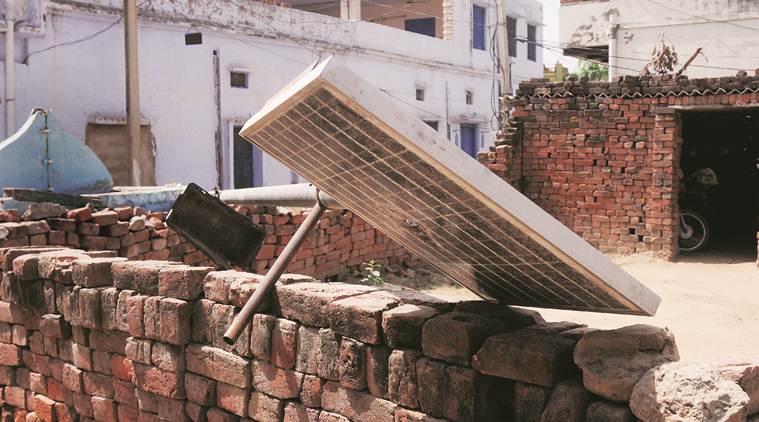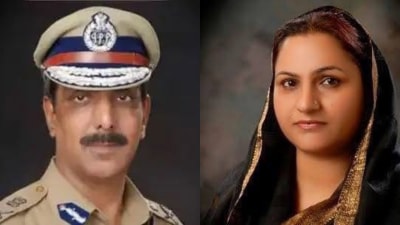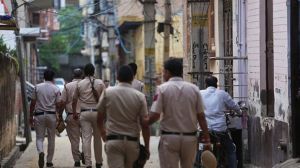Bolni in Rewari: At this adopted village, work remains, so does support for MP
Spread across 472 hectares, Bolni is made up of 715 households and has a population of 3,636. Most families are involved in farming and cultivation, while close to 50 claim to have men posted in the Army.
 Locals said many solar lights have stopped working but authorities are yet to repair them. (Express photo: Amit Mehra)
Locals said many solar lights have stopped working but authorities are yet to repair them. (Express photo: Amit Mehra)
Located barely 7 km from National Highway 48, Rewari’s Bolni village, adopted by Gurgaon MP Rao Inderjit Singh under the Saansad Adarsh Gram Yojana, on the face of it appears better off than many counterparts, with paved lanes, concrete homes, solar lights and three government schools. But a closer look reveals that a lot remains to be done, with drains filled with stagnant water, piles of garbage dumped across the village, defunct solar lights, and residents complaining of water and electricity problems.
Spread across 472 hectares, Bolni is made up of 715 households and has a population of 3,636. Most families are involved in farming and cultivation, while close to 50 claim to have men posted in the Army. According to the 2011 census, 2,566 residents are literate.
Click here for more election news
On November 7, 2014, Singh submitted a letter to the then Deputy Commissioner of Rewari, informing him of his decision to adopt Bolni. Since then, residents say that though Singh has come to Rewari on multiple occasions, he has visited the village only once.
“These roads were paved from before, but solar lights were installed two years ago. In many places, they have stopped working, people have stolen batteries, one solar light fell down. We asked the sarpanch to either get it removed or fixed, but nothing has been done,” said Roshan Lal, a painter, adding that electricity comes for 8-10 hours a day in the village.
Meanwhile, women say the handpump water is too saline. While some have bought water filters, others pay Rs 10 daily to fill water, mostly in 15-litre cans, from water tankers.
“We use handpump water for washing and cleaning… We discussed this with the minister when he visited, following which a pipeline was supposed to be installed. But the work is still ongoing,” said Santosh, a housewife. Flashing a bill dated March 12, 2018, she claimed residents have already been charged Rs 500 for connections. “They have taken money but not even completed the work. When we heard the village had been adopted, we thought these problems would be fixed. But there has been no improvement,” she said.
Bolni has a small medical centre, and the closest government hospital is 4 km away, in Kasola village. It has three government schools and two private ones. But some loopholes remain. At the Government Primary School, for instance, there are only two teachers for 60 students in grades I to V.
A teacher who requested anonymity, claimed: “There were three of us until September, but the other teacher was promoted and was not replaced. We are managing with interns now.”
The village sarpanch Naresh Kumar, however, claimed: “The minister visits us every three-four months, and a lot of work has been done. The roads have been paved, a community centre has been made.”
In the lane leading from the main road into Bolni is the home of 88-year-old Ram Chander Yadav, who retired from the Army years ago. He spoke of cleanliness as the biggest problem, pointing to two piles of trash near his home. He claimed municipal corporation workers visit only once in 15-20 days.
“Nothing has changed in the village the last five years… At the end of the day, it is just a formality – he had to adopt some village, so he adopted ours,” he said.
But he, like many other residents, also explained why he might give the MP another chance: “He is from the same caste, the same gotra, the same household as all of us.”



- 01
- 02
- 03
- 04
- 05




























